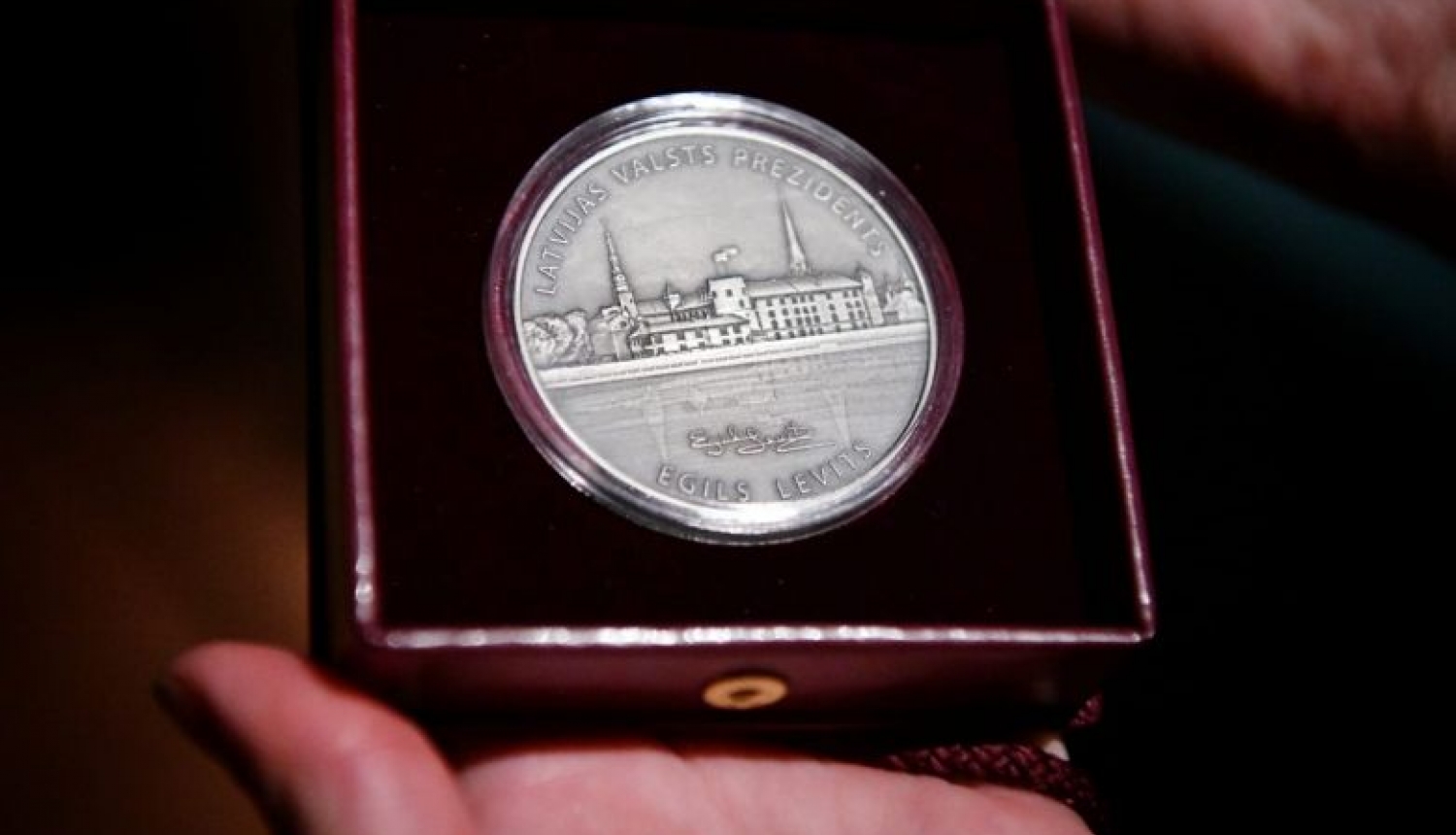‘Your lifetime’s work in giving Rundāle Palace back its former glory is invaluable. Palace has gone through enormous transformation in last 50 years. Rundāle Palace has become a heritage management benchmark at the European level. That is why it is a real honour to present the first Presidential Medal of Honour to you, Mr Lancmanis,’ said President of Latvia Egils Levits as he presented the prominent award to the ‘soul’ of Rundāle Palace Museum – art historian and painter Imants Lancmanis.
During visit to Rundāle Palace, President of Latvia Egils Levits and First Lady Andra Levite planted a rose bush ‘Marga’ created by breeder Dzidra Rieksta in Palace’s Rose Garden and met with Laura Lūse, Director of the Rundāle Palace Museum, art historian and painter Imants Lancmanis and Rundāle Palace Museum Research Department Chief Expert and curator Lauma Lancmane. By visiting Rundāle Palace President is urging people to visit Latvia’s museums to support them at this time. He invites everyone to visit the well-known and also smaller museums that are a part of regional cultural tapestry.
‘Our nation has a unique culture, and museums are an integral element of our national culture. Museums have always depended on visitors, and now, when social life has almost stopped, they need them more than ever. I invite everyone to visit different museums of Latvia to spend a little more time than usual away from everyday rush admiring the cultural diversity offered by Latvian museums. Please do not forget about restrictions and safety of museum premises and areas,’ stressed the President of Latvia Egils Levits.
Presidential Medal of Honour is made of silver. Front of the medal is embossed with Riga Castle skyline and signature of the President of Latvia Egils Levits. The other side embossed with coat of arms of the Republic of Latvia and the first sentence of the Preamble of Satversme: ‘The State of Latvia, proclaimed on 18 November 1918, has been established by uniting historical Latvian lands and on the basis of the unwavering will of the Latvian nation to have its own State and its inalienable right of self-determination in order to guarantee the existence and development of the Latvian nation, its language and culture throughout the centuries, to ensure freedom and promote welfare of the people of Latvia and each individual.’





